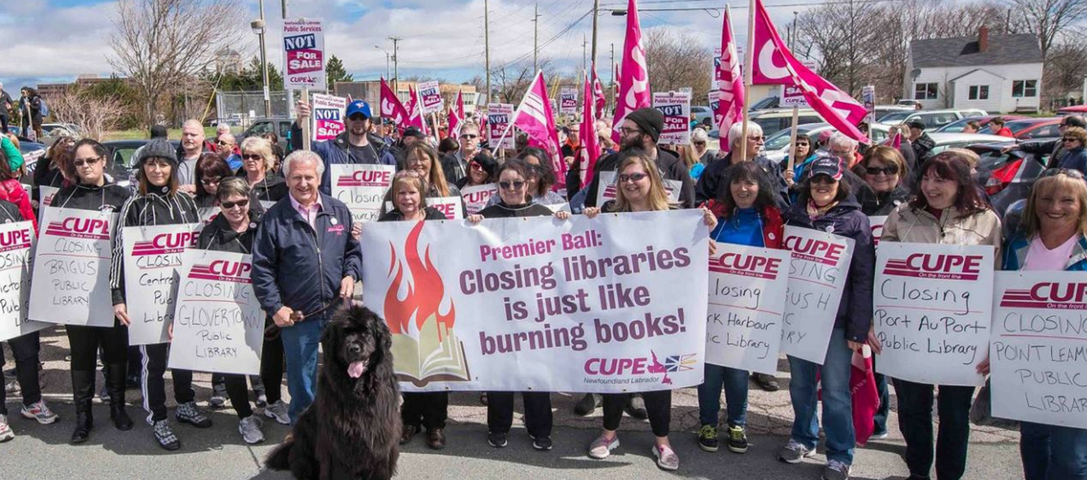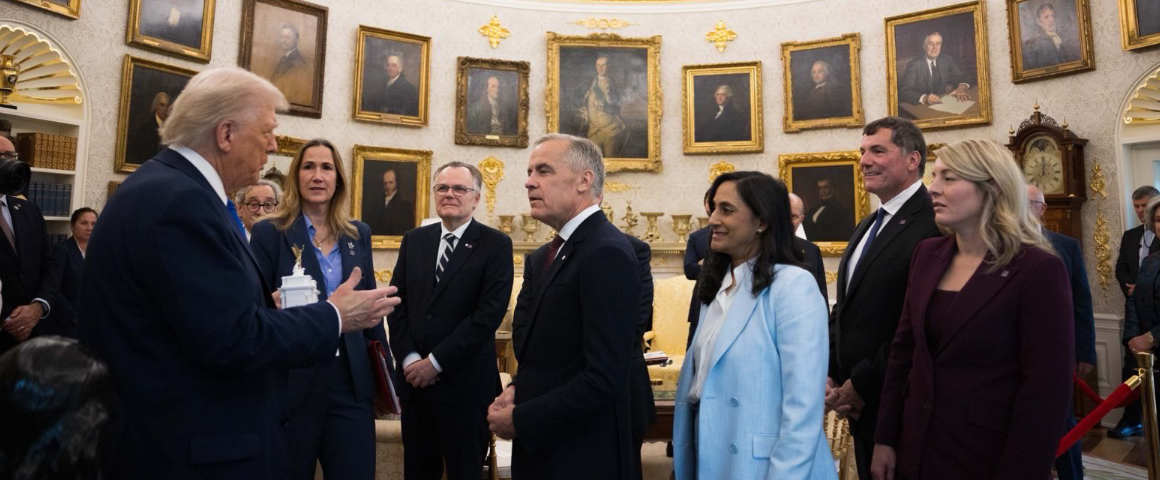Newfoundland and Labrador’s new premier, Andrew Furley, entered the provincial legislature in October, after winning a byelection in the riding of Humber-Gros Morne which had been left vacant by previous Liberal leader Dwight Ball. Ball is remembered for leading the province into a period of what could generously be called “tough decisions” in 2016, including an austerity budget which was widely protested. The costs of the ongoing hydro dam on Innu lands in Labrador have become an endless source of criticism and worry over the province’s future, and the COVID 19 pandemic has also taken its toll. The oil sector in particular is in a rocky place; the industry that was supposed to bring Newfoundland and Labrador into prosperity after the collapse of our once enormous fishery now seems on the brink of throwing thousands of workers under the bus, and no serious plans are in place for a just transition to a green economy.
Premier Furey has made financial matters a top priority, announcing that an “economic recovery team” would be created to “review government expenditures, the province’s fiscal capacity, how services are delivered, and explore growth sectors such as clean energy and investments in technology.” The chair of this team is Dame Moya Greene.
Moya Greene is described in the government’s official release as being “globally-recognized for her change-management skills.” Well, there is certainly truth to that, but much is missing from the description. When the CBC reported on Greene’s appointment in September, they said some of her decisions have been “controversial,” namely those relating to privatization. And while talking of her “change-management skills,” Furey squarely stated that “everything is on the table.”
Greene’s credentials are based largely on her experiences with Canada Post, which she headed from 2005 to 2010, and the UK’s Royal Mail, where she was chief executive from 2010 to 2018. The premier’s comments notwithstanding, Greene’s work at those two institutions makes it abundantly clear that we are facing yet another potential round of privatization and attacks on workers’ rights. Canada Post’s present day format owes much to Green’s plans for “modernizing” Canada’s public mail service, where cost-cutting efforts have created a more stressful, tiring and risky work environment for postal workers.
Neoliberal economic policy was also used to undermine the Royal Mail. Following the UK election in 2010, the new Conservative-Liberal coalition government appointed Greene as CEO of Royal Mail and pushed forward plans to privatize the company. Royal Mail became a publicly traded company in 2013, allowing employees up to 10 percent of shares for free; Greene was quoted in The Guardian as saying this was a way to provide staff with “a meaningful stake in the company” and allowing the public to “invest in a great British institution.” As if the British public had not been contributing to the Royal Mail, as a publicly-owned entity, for decades.
In the end, the government raised 3.3 billion pounds by selling its stakes in the postal service, a rather minor sum in the grand scheme of things.
As for Newfoundland and Labrador, Greene has already made ominous comments about the cost of rural services, targeting healthcare and the intra-provincial ferries in particular. She hasn’t yet said anything solid, but her comment that “it’s important for people to know what things cost” is a strong hint.
The cost of the rural ferries has long been a subject of heated argument. Last year, the province budgeted just over $70 million for the 12 ferry routes it operates, estimating a return of only 11 percent of that through fares. That is to be expected, since most of these routes service the handful of coastal communities (outports) that lack modern road access. These communities are very small, some home to only a few dozen residents, and the boats are their road equivalents. People don’t directly pay to drive on highways, despite that fact that road maintenance is an even higher proportion of the provincial budget than the ferries. Furthermore, the ferries are one of the only forms of public transit between communities, now that CN’s rail service has been abandoned and the highway bus privatized. People can travel a decent distance at a fairly low price on these boats, which are a lifeline to parts of the island that have been depressed since the collapse of the cod fishery.
The usual “cost cutting” argument at this point is to say these folks should all move. But resettlement is a touchy subject; hundreds of outports relocated in the 1950s and 60s to designated “regional centres” where there would be larger and better equipped services infrastructure, and many families lament the loss of their old homes and outport culture. Rural life has been in sharp decline in the last thirty years as few young people stay to raise families. It’s a vicious cycle that the government uses to justify ever more “rationalizations.”
Healthcare is no different. With a small population spread out over a large land area, there are few large health centres. Rural residents already have to travel quite far to get a regular checkup or a dentist visit. Many more advanced services are only available at the Health Sciences Centre in St. John’s, necessitating a very long journey from one end of the province to the other. The prospect of making local health clinics even worse than they are is an insult and potential death sentence to rural residents, especially in Labrador where a large portion of population is both rural and Indigenous. What measures of “affordability” does Dame Greene have to suggest to Innu youth for whom there is a desperate need for mental health services? What cost-cuts will ensure there is enough capable staff to make sure another teenager doesn’t end their own life while in government care?
Declines in oil prices have put a deep fear into the provincial government. Very little has been done to diversify, and it is laughable to hear the oil industry supporters now saying we must do so, and that their sector will fuel it. Yes, the green transition funded by oil! Meanwhile what fate awaits the oil sectors workers in this province? No transition is planned for them.
Greene can claim as often as she wants that “it doesn’t matter who owns anything.” In fact, it does matter – working people deserve an economy that is run by and for them, not for the profit of shareholders. The economy does not exist in the abstract; it is a human construction and can be modified to fit different needs and priorities. As it is, the province will not even commit to a paltry $15 minimum wage. The 12-week strike action by Dominion (Loblaws) workers here is proof of that. Interestingly, the House of Assembly did recently agree to look into the concept of a guaranteed income, proposed by NDP MHA Jordan Brown. Why might this be more appealing? In any format we can expect Liberals and Conservatives to back, it could be viewed as an alternative to other forms of social security – another excuse to cut something, somewhere.
Austerity and privatization must be resisted; if the mass protests in 2016 are any indication, the people of this province know that to be true, and therein lies the possibility for a movement that puts the needs of the working class ahead of profit.
Photo of protest against library closures, 2018 [Credit: CUPE]
[hr gap=”10″]
Support socialist media!
If you found this article useful, please consider donating to People’s Voice.
We are 100% reader-supported, with no corporate or government funding.




